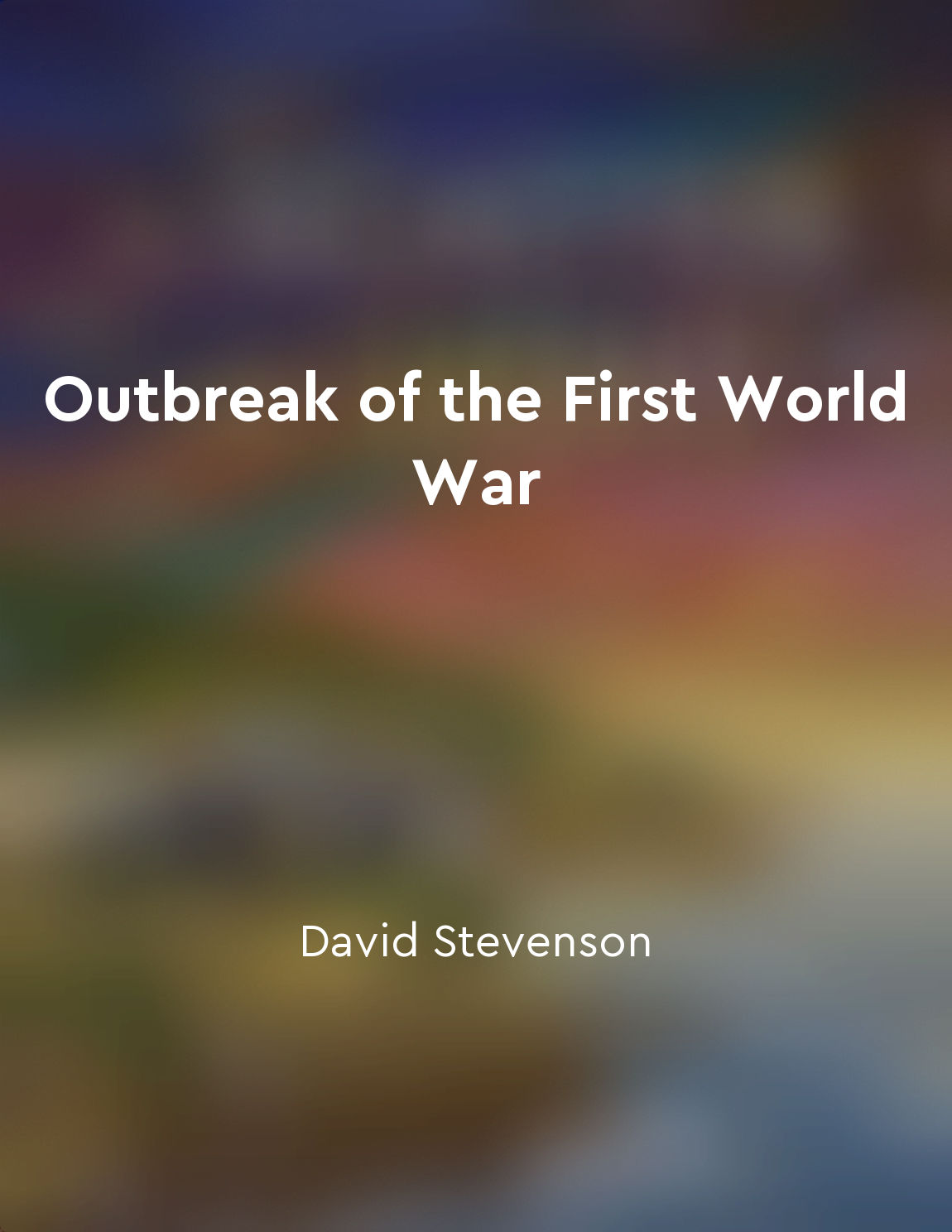Involvement of colonies and territories from "summary" of Outbreak of the First World War by David Stevenson
The involvement of colonies and territories played a significant role in the outbreak of the First World War. The European powers had established vast empires across the globe, and these colonies and territories were drawn into the conflict as a result of their ties to their colonial masters. The war was not limited to the European continent; it was a global conflict that involved territories in Africa, Asia, and the Pacific. The colonies and territories provided valuable resources, manpower, and strategic advantages to the European powers. They served as bases for military operations, sources of raw materials, and markets for finished goods. The European powers relied on their colonies and territories to support their war efforts and enhance their overall strength in the conflict. The involvement of colonies and territories also had profound social and cultural implications. The war brought colonial subjects into direct contact with European soldiers and administrators, leading to instances of collaboration, resistance, and rebellion. The war disrupted traditional ways of life in many colonies and territories, as resources were diverted to support the war effort and local populations were mobilized for military service. The conflict in the colonies and territories was often brutal and indiscriminate. Civilians were caught in the crossfire, and atrocities were committed by all sides. The war transformed the colonial world, creating new power dynamics and shaping the future of decolonization in the 20th century.- The involvement of colonies and territories in the First World War was a complex and multifaceted phenomenon. It highlighted the interconnectedness of the global order and the ways in which imperial powers projected their influence beyond their borders. The war left a lasting impact on the colonial world and set the stage for the upheavals and transformations of the 20th century.
Similar Posts
Globalization challenges national identities
The rise of globalization in recent decades has posed significant challenges to the notion of national identity. As connections...

Stalemates in trench warfare
Trench warfare during the First World War was characterized by a series of stalemates, where neither side was able to make sign...
The fall of empires brought periods of turmoil and uncertainty
The decline and collapse of great empires throughout history have often led to periods of chaos and unpredictability. When a po...

Rapid spread of hostilities
The rapid spread of hostilities is a central feature of the outbreak of the First World War. In the summer of 1914, a series of...
Propaganda shapes perceptions of the war
Propaganda was a powerful tool used by governments during the First World War to shape public perceptions of the conflict. Thro...

India's wars have been fought on different fronts
India's military history is a tapestry woven with threads of valour, sacrifice, and strategic acumen. From the ancient battles ...
Nationalism fuels public support for war
The idea that nationalism can contribute to a society's readiness to go to war is a central theme in understanding the origins ...
The unfolding narrative of human history is a testament to the enduring legacy of human imagination and ingenuity
Throughout the annals of human history, one can discern a remarkable pattern of progress driven by the boundless creativity and...
Propaganda played a crucial role in shaping public opinion
Propaganda, with its power to manipulate perceptions and beliefs, was a pivotal force in molding the thoughts and attitudes of ...

